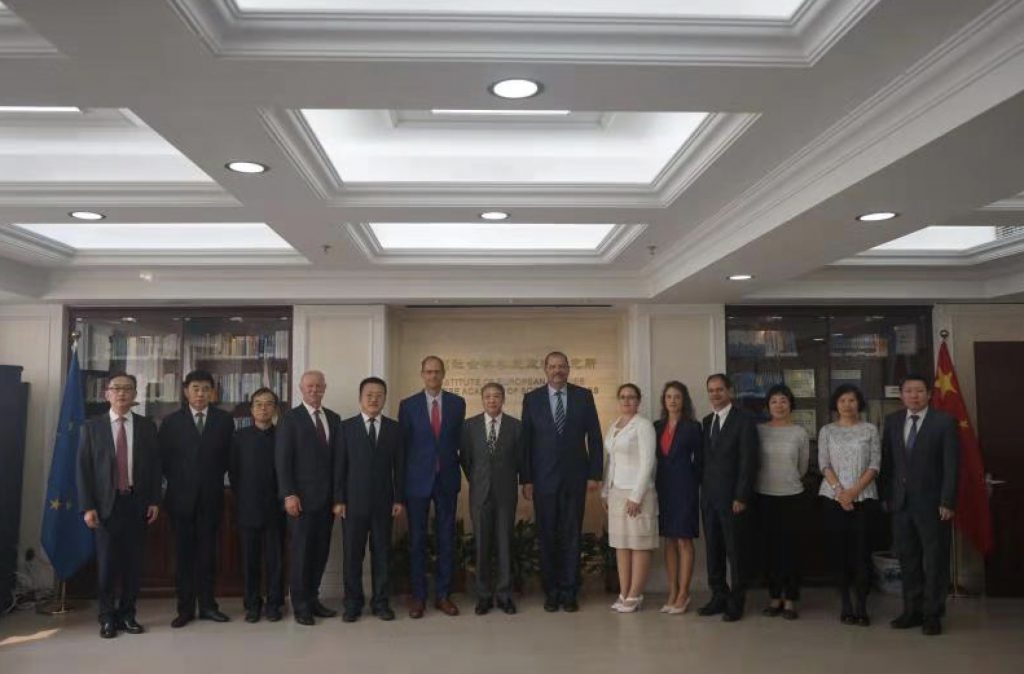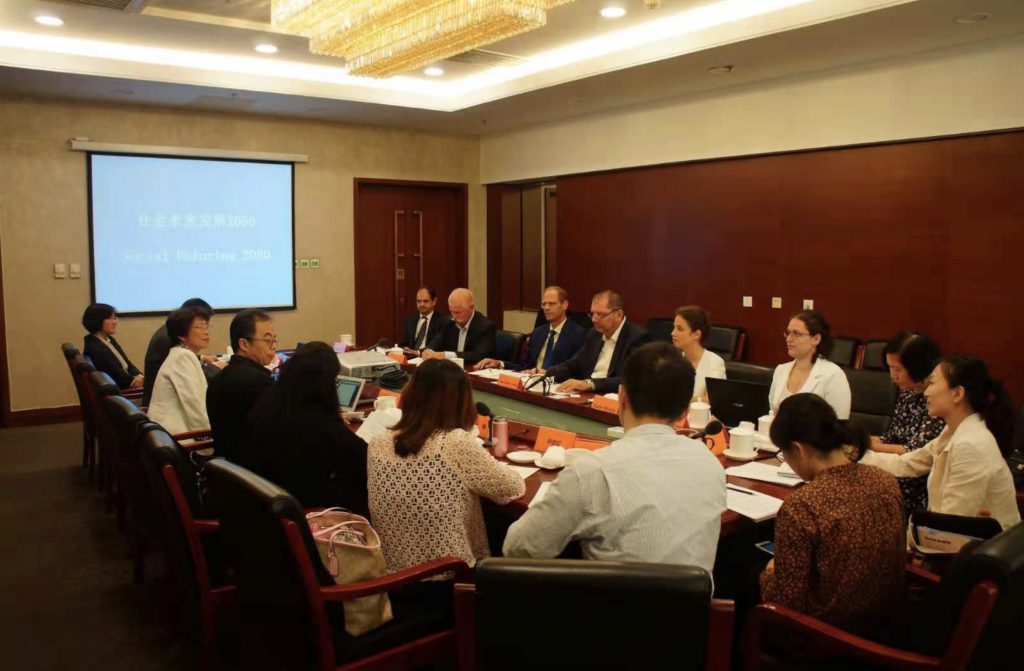Workshop on Social Futuring was recently organized in Beijing. This event was hosted by Chinese Academy of Social Sciences and China-CEE Institute together with the Corvinus University of Budapest on September 13, 2018. Delegation of researchers from Social Futuring Center at Corvinus University of Budapest led by Zoltán Oszkár SZÁNTÓ, Vice Rector of the university presented their work on this topic.

This one-day workshop set five sessions with keynote speeches followed by discussions. The five sessions included Normative Standarsds and Features of Social Futuring, General Logic of the Social Futuring Index: Pillars and Dimensions, Social Futuring from Chinese Perspective, Methodology of Social Futuring Index: Methods, databases and measurement, and Further Perspective on Social Futuring. Social Futuring Center was created by Corvinus University of Budapest working on social futuring index. Researchers from this center introduced to workshop participants, from analytical framework to normative framework then narrative framework, their methodology of social futuring index. According to their research, purpose of this study was defined as not to predict the future, but to better the life of human being. Based on that, their research believes that social futuring index should be built on four pillars, including ecological-geo-political, technological, social-economical and cultural-spiritual, with four normative standards for good life as follows: Attachment, Care, Security and Peace and Contentment. 2 to 4 dimensions will be concerned for each standard then 3 to 6 indicators will be decided to illustrate each dimension.
Chinese researchers presenting at this workshop included those from Chinese Academy of Social Sciences, Peking University and other organizations.
Dr Lu Yang, researcher from Institute of Population and Labour Economy, CASS presented her work on Demographic Transition and the Long Term Trend of Economy in China. According to the estimation, 25% of the economic growth is contributed by China’s demographic dividend of this period. But, ever since the year 2010, China’s demographic structure has changed radically, with the working-age population shrinking and the dependency ratio rising, and all these changes create negative effects on the Chinese economy. By 2030, the labor supply and potential employment will be reduced by 50 million. However, the education level will be increased, with the average year of schooling above age15 going up from 8 year to 11 year. The diminishing demographic dividend and the slowdown of potential growth rate is not a unique phenomenon in China. Similar transition also happened in Japan in the early 1990s. China’s long term economic growth can be reconstructed with a series of reforms. For example, the relaxation of birth policy will benefits the long term economic growth.
Dr Zhang Jun, senior researcher from Institute of European Studies, CASS shared some of her remarks on Social Futuring. She mentioned that in mid-1970’s, when the economic booming after the WWII was ended and the industrialized world suffered from a long-lasting crisis, 3 political scientist from Western Europe, North America and Japan finished a report: The Crisis of Democracy: Report on the governability of democracies to the Trilateral Commission. It was also a future-oriented study which aimed at evaluating the sustainability of democracy. The study had similar structure as Social Futuring, and covered the economic, social and cultural dimensions of the targeted regions. Nevertheless, this was primarily a qualitative study while Social Futuring combines the qualitative and quantitative methods, and will provide more solid basis for comparative studies. Comparing the two studies, one can clearly see the advancement of intellectual exploration.
Dr Kong Yuan, researcher also from Institute of European Studies, CASS described his observation of Confucianism with the topic of Back to the Future. He introduced the basic idea of Confucianism by a case study of Book of Songs, then the role played by Confucianism in the transitive period from late Zhou to Qin, and to Han dynasty. He ended his presentation by relating Confucianism to contemporary world politics, domestically and internationally.
Dr Kong Tao, researcher from Institute of Social Sciences Survey (ISSS), Peking University gave a brief but thorough introduction of their work and their way of collecting statistics in their institute.
This workshop ended with illuminating discussions of success and fruitfulness.
The Vice President of Chinese Academy of Social Sciences Professor Cai Fang had an official meeting with the Hungarian delegation led by Vice Rector of Corvinus University next day of the workshop on September 14, 2018. They agreed that research cooperation and academic exchanges between these two countries should be deepened and strengthened in the future.

(by Sun Yan, researcher from Institute of European Studies, CASS)
